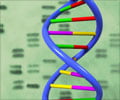For the first time ever, Yale University researchers have made a clinical diagnosis using comprehensive DNA sequencing
For the first time ever, Yale University researchers have made a clinical diagnosis using comprehensive DNA sequencing of all the protein-coding genes in the genome.
The information changed the course of treatment of a baby boy suffering from symptoms of dehydration thousands of miles away in Turkey.The new approach to DNA sequencing used by Yale researchers and described online Oct. 19 in the Proceedings of the National Academy of Sciences is called whole exome sequencing because it selectively analyzes the 1 percent of the genome that contains genes that code for proteins. This approach has the potential to lead to dramatic new insights into almost every human disease and, as cost of the technology decreases, will be commonly used in clinical settings, predicted Richard Lifton, senior author of the paper and Sterling Professor and chair in the Department of Genetics and professor of internal medicine.
"We believe this heralds the dawn of a new era in genetics and personalized medicine," said Lifton, an investigator for the Howard Hughes Medical Institute.
The new approach is a marriage of advanced DNA sequencing technology and microarray protocols that can selectively sequence protein-coding regions of the genomes. The paper shows the methodology can identify genetic mutations with great precision at a cost 10 to 20 times less than sequencing the entire genome with its 3 billion "letters." Because the vast majority of mutations with large clinical effects lie in these protein-coding regions, this promises to be an efficient strategy for discovering disease-related genes, Lifton said.
The Yale team — which included Murim Choi, a postdoctoral fellow, and Shrikant Mane, director of Yale Center for Genome Analysis at the new Yale West Campus —combined whole exome arrays to purify the protein coding genes and the latest high-throughput DNA sequencing to identify sequence changes in protein coding genes.
At the request of a Turkish doctor, they used technology to conduct a genetic investigation of a five-month old Turkish baby boy thought to suffer from Bartter syndrome, a rare, life-threatening disease caused by mutations in renal transporters that cause loss of salt, potassium and water from the kidney. Instead, the Yale analysis of 34 million base pairs in this boy's genome led to the discovery of a mutation in both copies of the gene known to cause congenital chloride diarrhea, a rare birth disorder in which the gastrointestinal tract fails to properly absorb chloride and water. The investigators went on to show that five additional patients previously referred for evaluation of Bartter syndrome also had mutations in the congenital chloride diarrhea gene,
Advertisement
Lifton envisioned use of this technology in research for discovery of new genes contributing to both common and rare diseases, as well as application in the clinic to diseases ranging from autism to diabetes. "The ability to use comprehensive genetic diagnosis to clarify disease causation and to tailor treatment to the specific causes of disease in individual patients holds great potential to improve health," he said.
Advertisement
Source-Eurekalert
RAS











